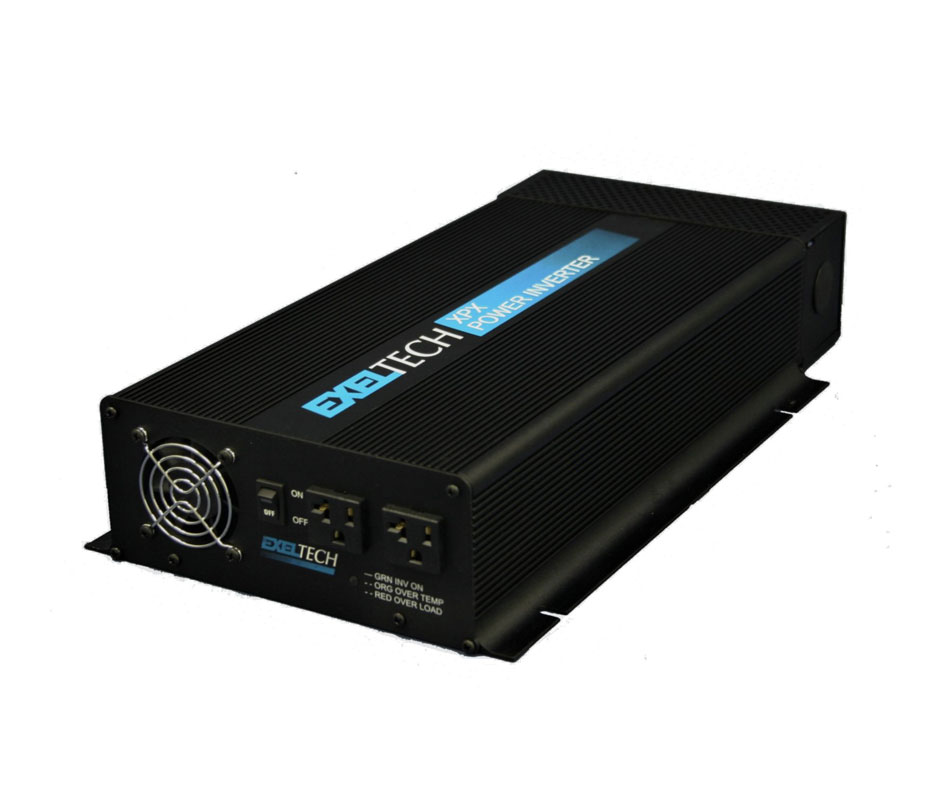In renewable energy and off-grid power systems, 2K-watt power inverters are crucial in converting direct current (DC) into alternating current (AC). As the demand for clean and reliable energy increases, power quality becomes a significant concern. One aspect of power quality that needs careful consideration is the presence of harmonics and waveform distortion.
But, before delving into power quality management, let’s briefly discuss harmonics and waveform distortion.
Understanding Harmonics and Waveform Distortion
The current and voltage waveforms are perfect sinusoidal waves in an ideal AC power system. However, in real-world applications, the power and voltage waveforms often deviate from the original shape due to various factors.
Harmonic distortions
Harmonics refers to the additional frequencies in the waveform that are multiples of the fundamental frequency (typically 50 or 60 Hz).
These harmonics can result from nonlinear loads such as electronic devices, power converters, and inverters. They introduce unwanted effects, including increased heating in equipment, distorted voltage waveforms, and interference with sensitive electronic devices.
Waveform distortion
Waveform distortion occurs when the shape of the voltage or current waveform deviates from its ideal sinusoidal shape. It may occur due to harmonics, sudden load changes, voltage spikes, or electromagnetic interference.
Waveform distortion can lead to inefficient power transfer, increased losses, equipment malfunction, and reduced lifespan of electrical components.
Why is Managing Power Quality Crucial?
Here are three reasons why managing power quality is crucial:
1. Equipment Efficiency
Harmonics and waveform distortion can negatively impact the efficiency of true sine wave inverters and connected electrical equipment. Power quality management ensures optimal performance and energy efficiency by minimizing harmonic distortion and waveform deviations.
2. Equipment Lifespan
High harmonics and waveform distortion levels can cause additional stress to electrical equipment. It results in overheating, premature component failure, and reduced lifespan. Effective power quality management helps extend the operational life of the equipment.
3. Compatibility with Sensitive Devices
Many electronic devices are sensitive to harmonics and waveform distortion. Unmanaged power quality issues can cause malfunctions, data corruption, and equipment damage. Maintaining a clean and stable power supply through power quality management ensures compatibility with sensitive devices.
How to Manage Power Quality in 2K-Watt Power Inverters
Managing power quality in your true sine wave inverters is crucial to ensure electrical systems’ efficient and reliable operation. You can employ these four strategies for effective power management:
1. Filtering
Incorporating harmonic and electromagnetic interference (EMI) filters can help reduce harmonics and electromagnetic interference levels. These filters help to attenuate specific frequencies and maintain cleaner power output.
2. Power Factor Correction (PFC)
Implementing power factor correction techniques can minimize harmonic content and improve power factor. PFC circuits optimize the power flow, reduce reactive power, and enhance the overall efficiency of the inverter.
3. System Design
Careful system design and component selection can improve power quality. Choosing inverters with advanced control algorithms and improved circuit designs can reduce waveform distortion and harmonics generation.
4. Compliance with Standards
Adhering to relevant standards and guidelines for power quality, such as IEEE 519, ensures that the power inverter meets the required performance criteria. Compliance helps to minimize harmonic distortion and maintain acceptable levels of power quality.
5. Regular Maintenance
Regular inspection, maintenance, and calibration of power inverters are essential for promptly identifying and resolving any power quality issues. This proactive approach helps prevent equipment failure and ensures consistent performance.
By effectively managing power quality in 2K-Watt power inverters, you can achieve improved energy efficiency, reduced downtime, and enhanced overall system performance. Additionally, it will contribute to a more sustainable and reliable electrical infrastructure.
So, whether you’re seeking reliable power solutions for residential, commercial, or industrial applications, Exeltech can help you make informed decisions.





